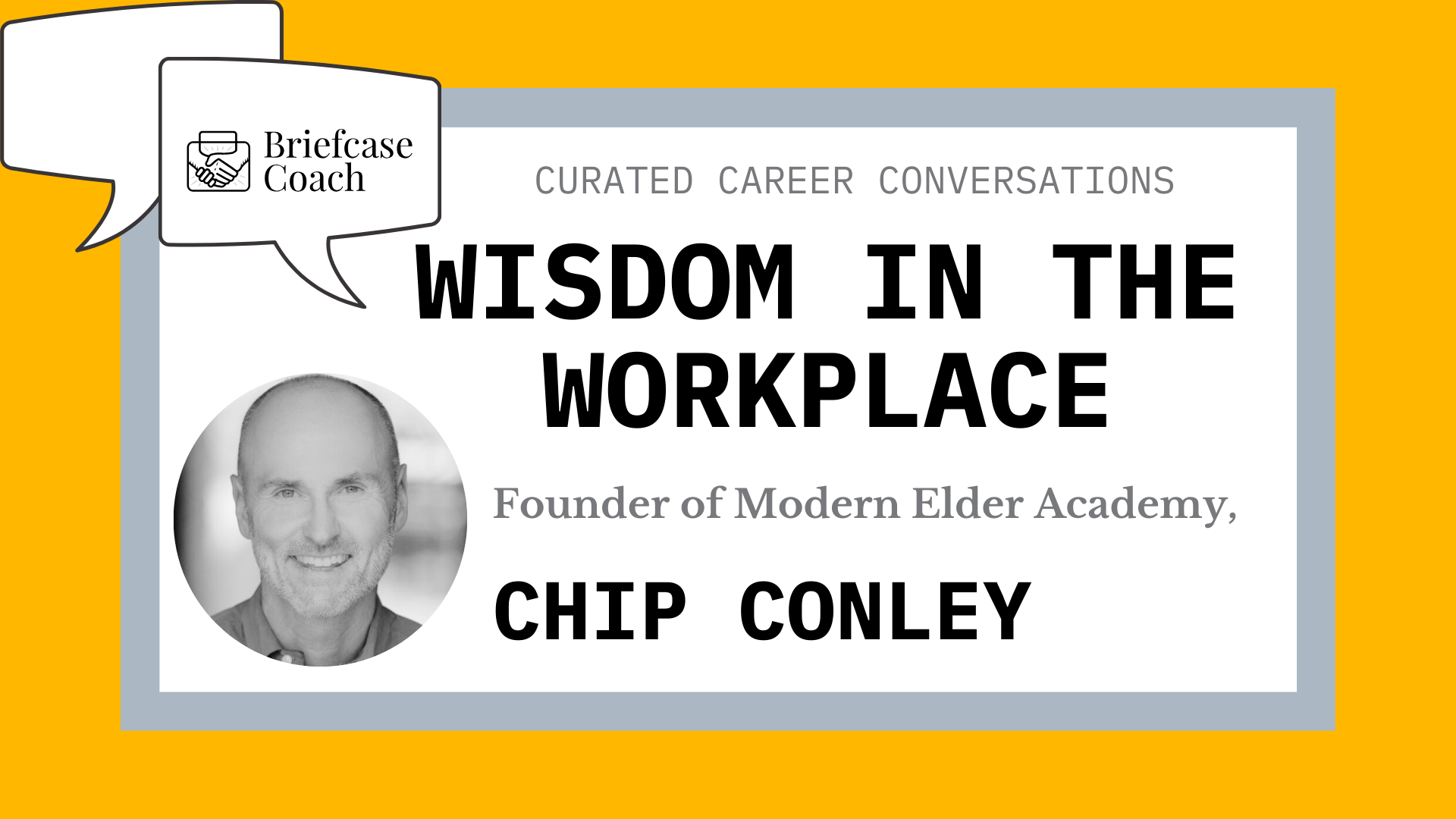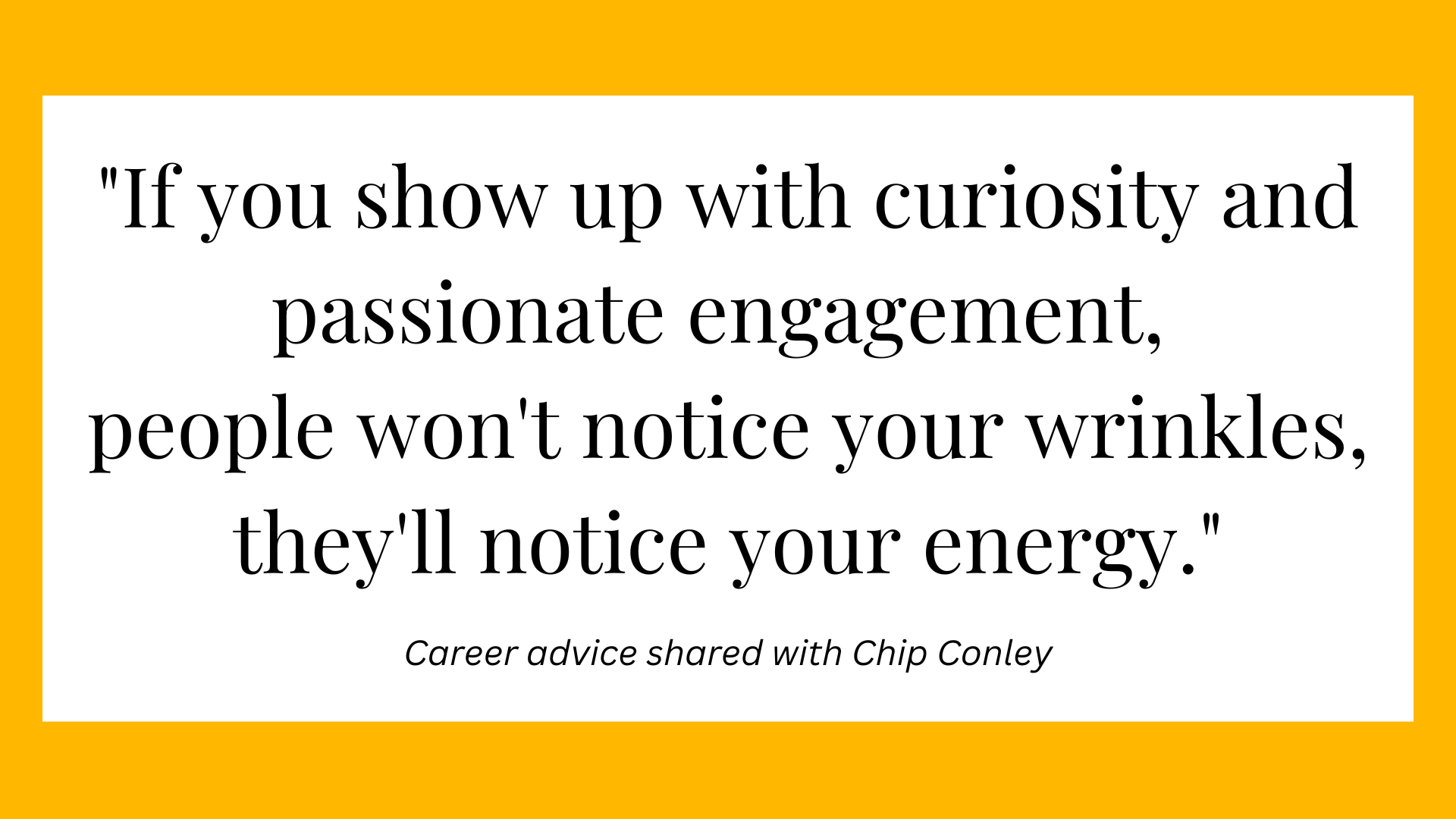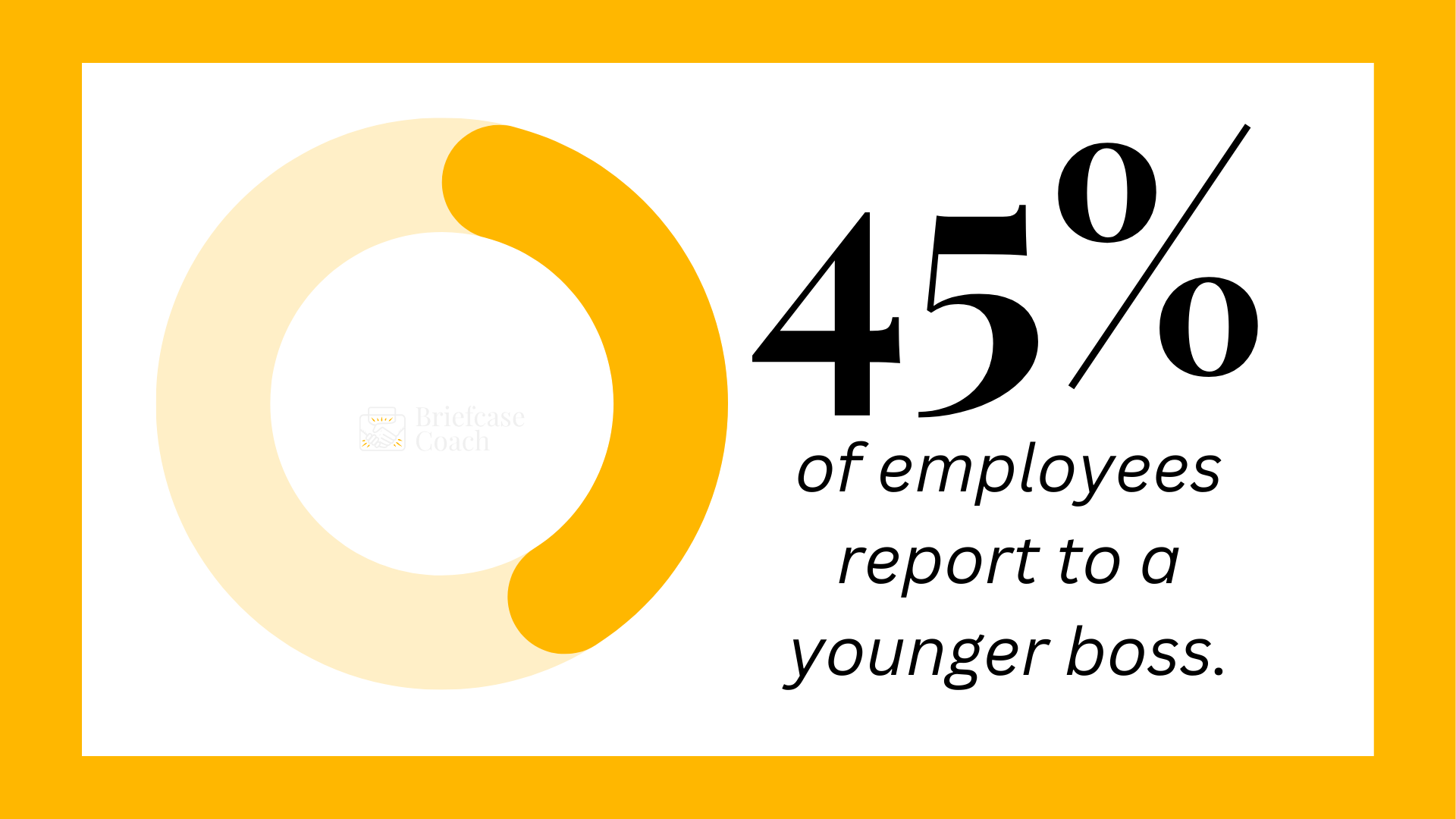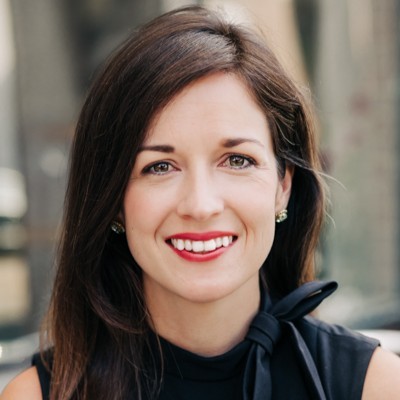
As an expert career strategist and leader of global executive branding firm Briefcase Coach, I am always looking for new insights and perspectives to share with my clients and the wider community of job seekers and employers. I recently had a fascinating conversation with Chip Conley, renowned author, speaker, and founder of the Modern Elder Academy.
In our conversation, Chip offers so much practical advice for navigating life and career during midlife transitions, like his strategy for fostering intergenerational collaboration. These insights are invaluable not just for those individuals who may feel unseen in the workplace, but also for the employers who are eager to engage and leverage the unique strengths of this incredibly valuable segment of their workforce.
Prefer to watch? See the end of the article for a link to the video recording of our interview.
Let’s get started…
Midlife Transitions: Embracing Change and Finding Purpose
Sarah Johnston (SJ): Chip, your career has been a remarkable journey, from founding a California hospitality company and then became the Head of Global Hospitality and Strategy at Airbnb. I’m going to ask you the same question today that I ask every single one of my clients at the start of my engagement with them: Did you set out on this journey? Did you intentionally choose your career path? Or would you say that in a lot of ways your career evolved and it’s been serendipitous?
Chip Conley (Chip): My career journey has been very serendipitous. It’s helpful to connect the dots moving forward, but it is easier to connect the dots moving backwards. Looking back at my career, a consistent theme has been: I’m a social alchemist, a mixologist of people. Being in the boutique hotel business was very good for that, as were restaurants and spas.
Being a MODERN ELDER at Airbnb allowed me to be a SOCIAL ALCHEMIST.
Chip Conley
Joining Airbnb as their modern elder to the three young founders, when it was an unknown company, and then taking it to be the world’s most valuable hospitality company allowed me to be a social alchemist and a catalytic leader. Then I decided to create the Modern Elder Academy, the world’s first midlife wisdom school. We’ve had 7,000 people from 60 countries over the last seven years come to one of our two campuses to experience a transformative experience around how to reimagine and repurpose your life and career in midlife, often in your 40s, 50s, and 60s.
SJ: That’s brilliant. I’ve seen many people struggle when they reach a point where their kids have left for college, they’ve accomplished their initial goals, and now they need to make a change. It’s really hard to make those pivots.
Chip: You are right about the pivots. How do we navigate the transitions of midlife? Because there are many transition during this time in our lives, not just career-wise. How do you cultivate purpose, especially when feeling stuck in what you have been doing? How do you own your wisdom? How do you understand what you’ve learned along the way?
There’s a beautiful quote from David Viscott: “The purpose of life is to discover your gift [or wisdom]. The work of life is to develop it. The meaning of life is to give your gift away.”
The fourth pillar we have is: how do we reframe our relationship with aging? The mindset on aging in the United States is pretty negative, but Becca Levy at Yale, who’s worked with us in our program, has shown that when you shift your mindset in midlife about aging from negative to positive, you gain seven and a half years of additional longevity, and you’re much happier. At MEA, that’s what we’re trying to work on.
I struggled in my late 40s. I knew I didn’t want to be running my boutique hotel company anymore, but I didn’t know how to extricate myself. I lost a few male friends to suicide during that time, all of them ages 42 to 52, during the Great Recession. So I could see that there was a need for tools and resources to help people in midlife.
Fostering Intergenerational Collaboration: Bridging the Gap
SJ: In your book Wisdom at Work, you talk a lot about the importance of the intergenerational workplace and ageism in the workplace. For many professionals, working across generations can be a challenge. What do you believe are some key factors that drive successful collaboration?
Chip: When I joined Airbnb at 52, I’d never worked in tech. Suddenly, I was surrounded by people half my age—I was literally twice the age of the average employee! I was there to help the three young founders become great leaders, but as a boomer in the land of millennials, I knew I had to earn their respect. I didn’t want it just because of my age. I wanted to be what they called a “modern elder”—someone as curious as they are wise. I loved that idea, the alchemy of curiosity and wisdom. I tried to mirror that.
Brian Chesky, the CEO, was only 31. So here I was, mentoring him as a leader, but he was also my boss. That required a huge amount of mutual respect. Having run my own company and been a CEO for 24 years, I had to learn to right-size my ego. For example, if Brian was running a meeting and I thought he should move on from a topic, I couldn’t just say so publicly. That would undermine his authority. I learned to mentor privately and intern publicly. By intern publicly, I mean I tried to be the most curious person in the room, always learning. For a guy my age, that was unusual.

An executive recruiter once gave me the best career advice: “If you show up with curiosity and passionate engagement, people won’t notice your wrinkles, they’ll notice your energy.” People are drawn to energy—and I’m not talking about “woo-woo” energy, although that’s part of it, but the energy of being curious, engaged, and eager to learn.
People are drawn to the energy of being curious, engaged and eager to learn.
As we get older, we’re sometimes stereotyped as less energetic, less engaged, and more judgmental. If you can be the opposite of that, you’ll be surprised how many people want you as their mentor. Over my seven and a half years at Airbnb, I had over 100 mentees!
Navigating the Modern Job Search and Embracing Fractional Work
SJ: Airbnb, when you joined, was a really cool company, a destination for people. But what about those who are stuck in their job search and might have to take a role that isn’t as exciting, maybe even reporting to someone younger? What advice do you have for them?
Chip: You probably have more choices than you realize. Many people think their only option is a comparable job with comparable pay and title, even if they have to report to someone younger. 45% of Americans report to a younger boss today. By 2027, the majority of Americans will be reporting to a younger boss, so don’t feel like there’s something wrong with you.

First, figure out your basic income needs. The higher that number, the fewer options you have. But if you can restructure your expenses and gain some flexibility, you might consider a portfolio career for a couple of years. Consult, do some freelance work, maybe even rent out a room on Airbnb! There’s nothing wrong with taking a year or two for what Mark Katherine Basteson called the “midlife atrium,” taking time and space to reflect on what you want to do next.
You can start this reflection while still in your current job, or if you’ve been laid off (especially with all the tech layoffs lately), use this time to explore. Many jobs are changing and being lost because of AI. AI is like Pac-Man for knowledge workers, and that’s not going away. Take this time to reflect on what is next while making some income.
If you have a good network, consider consulting. Many companies are hesitant to hire full-time employees right now, so they’re turning to project and contract work. You might even make the same amount, but with more flexibility.
This period of uncertainty might also be the perfect time to start your own business. The fastest-growing segment of entrepreneurs in the US is people 50 and older, and they’re twice as likely to succeed as those in their 20s or 30s.
SJ: I’m seeing that too! I have seen an uptick in requests to craft resumes for fractional executives. Many of my clients, especially former CIOs and financial leaders, are embracing fractional work. They want to own their careers and build a portfolio, and fractional roles are perfect for that. It’s essentially the 2025 word for contract work—companies get the leadership they need without adding headcount, and executives get the flexibility and control they desire. It’s a win-win!
Chip: And get well paid for it! Fractional work shouldn’t mean you’re automatically making half of what you made before. Often, you can work half-time and still earn two-thirds or even more of your previous salary.
Fractional work is going to continue to grow. The more uncertainty in the economy and the world (and there’s a lot right now!), the more companies will focus on fractional or contract work instead of hiring full-time. It’s really hard to plan ahead in certain industries, given the current political climate, and that creates more opportunities for fractional work.
Sarah, you’re doing a great service helping people with this. Many people think there’s something wrong with them if they’re doing fractional work, but it’s actually the opposite! You might even end up making twice as much on an hourly basis.
Reawakening Your Authentic Purpose: Aligning with Your Values
SJ: Chip, you’re spot on about the market instability and uncertainty. People are hesitant to make a move, even when they’re unhappy. I recently spoke with a job seeker who said, “Sarah, I hate my job, but it’s stable, so I can’t quit.” What advice do you have for those who want to reawaken their authentic purpose in a job they hate but feel like they can’t leave right now?
Chip: I’d start by looking at three things. First, let me tell you a bit about the Modern Elder Academy (MEA), the world’s first midlife wisdom school. We’re dedicated to helping people transition in their careers, and we offer a few different resources.
On our website, meawisdom.com, you’ll find a free ebook called “Living and Working on Purpose.” It’ll help you think through some questions about building a new career based on your purpose. We also have online courses and workshops in Santa Fe and Baja, all focused on cultivating purpose.
Personally, I think it’s important to have access to a coach or resources like MEA to help you distill your wisdom and figure out what you have to offer and how purposely make that part of your next career path.
Secondly, look at the people you admire. What are they doing? Could you sit down with a friend who seems happy in their career and understand how they got there? Sometimes our role models are closer than we think.
Finally, remember that you have more options than you might realize. Don’t get stuck in the mindset that you need a comparable job with a comparable title and salary. The world of work is changing, and there are many different ways to find fulfilling and meaningful work.
Embrace Lifelong Learning: Curiosity as Your Superpower
SJ: Between your books and Ted Talks, you’ve highlighted the theme of wisdom at work, and I think continuous learning is often a core factor in staying relevant and thriving through change. How do you recommend that professionals, especially those who are in leadership roles embrace lifelong learning as part of their professional growth, and what are some tips that you have in terms of learning and finding resources?
Chip: I’m a big fan of Peter Drucker, the management theorist. He wrote 40 books, two-thirds of them after age 65! His philosophy was that curiosity and learning are the elixir of life. There’s no fountain of youth, but there’s a fountain of learning.
“Curiosity and learning are the elixir of life.” – Peter Drucker
He said every two years he’d pick a topic that had nothing to do with his work as a business school professor and author, and he’d become an expert on it. He believed learning and curiosity were lubricants for the soul and mind. He learned everything from Japanese flower arranging to medieval war strategies!
How might you see curiosity are your superpower? As children, we ask tons of questions, but as teenagers and then adults, we often lose that. As adults, especially young adults and those with young families, there’s no time for curiosity. But learning how to incorporate curiosity and new learning is so helpful. It’s like putting seeds in the ground.

The problem for many people in midlife is that the ground feels hardened. You feel jaded, your career feels stuck. The key to building fertile soil again is learning and curiosity, especially around topics that interest you.
When I sold my company at 50, during the Great Recession, I had three topics I was curious about: new festivals – why people have a desire for in-real-life experiences in a digital world, emotions – because I had struggled with my emotions in my late 40s and hot springs. None of those had anything to do with each other or my joining Airbnb two years later, but they lifted my spirits and gave me positive energy because I was learning things just out of curiosity.
So don’t feel like you have to learn AI because you feel like you have to. Learn something that truly interests you—maybe the history of presidents and their leadership, or anything! Have fun with it.
The Art of Asking Questions and Building Your Network
SJ: Could you share your experience of transitioning from a traditional hospitality executive background to a tech driven company like Airbnb. What made you attractive to Airbnb? And how did you get on their radar?
Chip: I was on their radar because I was based in San Francisco where they were, and when I sold my company, it was a high-profile thing. But they also really liked a book I’d written called Peak: How Great Companies Get Their Mojo from Maslow. The three founders loved the idea of being a peak company, so that helped.
But they were taking a bricks and mortar guy with no tech background and putting him in a tech company. So I had to be open to being the most curious person in the room, even if that meant being the dumbest one. I wanted to ask a lot of questions.
I had to be open to being the most curious person in the room.
Now, if the questions were obvious, like “What does the word ‘product’ mean?” or “What does it mean to ‘ship a feature’?”, I’d write those down and ask later. I didn’t want to slow down a meeting by being the dumb guy. But sometimes my curious questions revealed blind spots that the company hadn’t considered.
To learn more, I highly recommend my book Wisdom at Work: The Making of a Modern Elder. I talk about becoming the “same seed, different soil.” I had skills to offer, but I was now planted in tech soil, not hospitality soil. My book goes into depth on how to make that adaptation.
SJ: You had credibility with those founders, but there’s definitely an art to asking questions. If you’re feeling invisible in a room and don’t have the credibility yet to ask insightful questions, how do you approach those “dumb” questions—the ones you can’t find answers to online and that might change the game? What’s the art of asking those questions effectively?
Chip: One thing we teach at MEA is appreciative inquiry. Do a Google search for it—it’s a method of asking questions that open up, in a catalytic way, new possibilities. If you learn how to use appreciative inquiry, people will notice. They’ll lean in because you’ll be asking really interesting questions. It takes a little bit of training, but not a lot. We cover it in an hour at MEA, so you don’t need to take a six-month course to become a good questioner!
SJ: What advice do you have for networking and finding people that can help you reach where you want to go in your career?
Chip: Research shows that the most valuable connections are often those with a second or third degree of separation—the people your network knows. So, instead of just focusing on your resume, think about your vision for your career. What kind of companies, positions, and people do you want to connect with? Share this with your network.
For example, you could say to a close contact, “I see on LinkedIn that you’re connected to these three people. I’d love to meet them. Do you know them well enough to make an introduction?” That warm introduction from a friend is incredibly valuable and far more effective than a cold outreach. There is a book by Karen Wickre – Taking the Work Out of Networking. It’s a great book. It is a “read it in the morning, use it in the afternoon” type of guide. I recommend it for those wanting to level up their networking skills.
A huge thank you to Chip Conley for sharing his wisdom and insights. I’m so grateful and inspired by his generosity and willingness to help others navigate the complexities of the modern workplace. Be sure to follow Chip Conley on LinkedIn and check out his book Wisdom at Work: The Making of a Modern Elder.
Now, here’s a challenge for you: I want you to step outside your usual circle and connect with someone outside your age bracket. That could mean reaching out to a younger professional with fresh perspectives or engaging with someone more experienced who can share valuable wisdom.
Why? Because some of the best ideas, insights, and opportunities come from unexpected connections. So, send a message, comment on a post, or strike up a conversation—you never know where it might lead!
Once you’ve done it, come back and let me know how it went! I’m eager to hear about the connections you make and the insights you gain.

